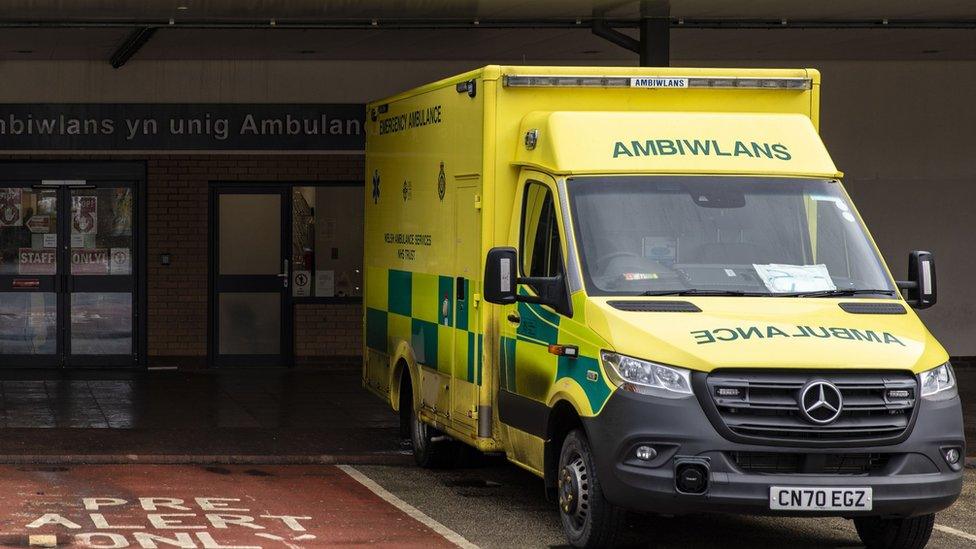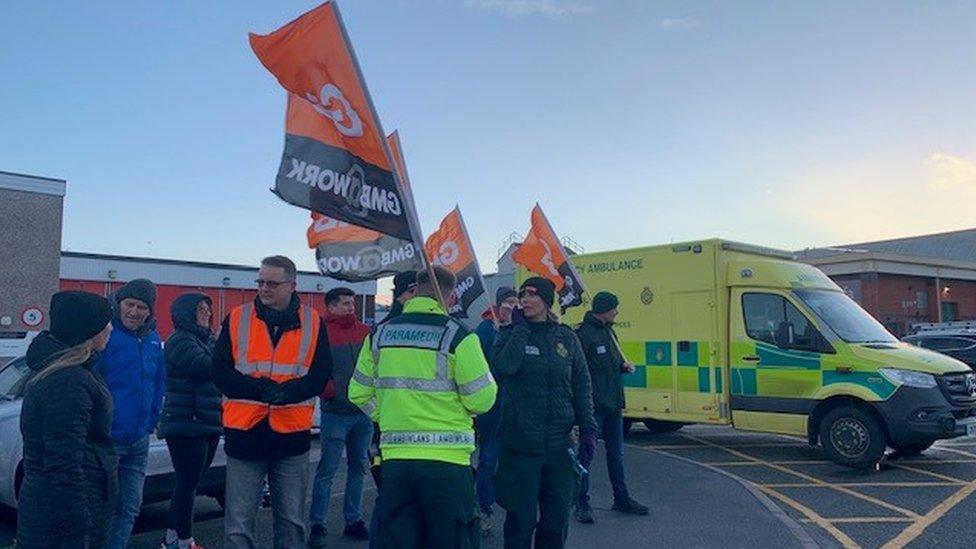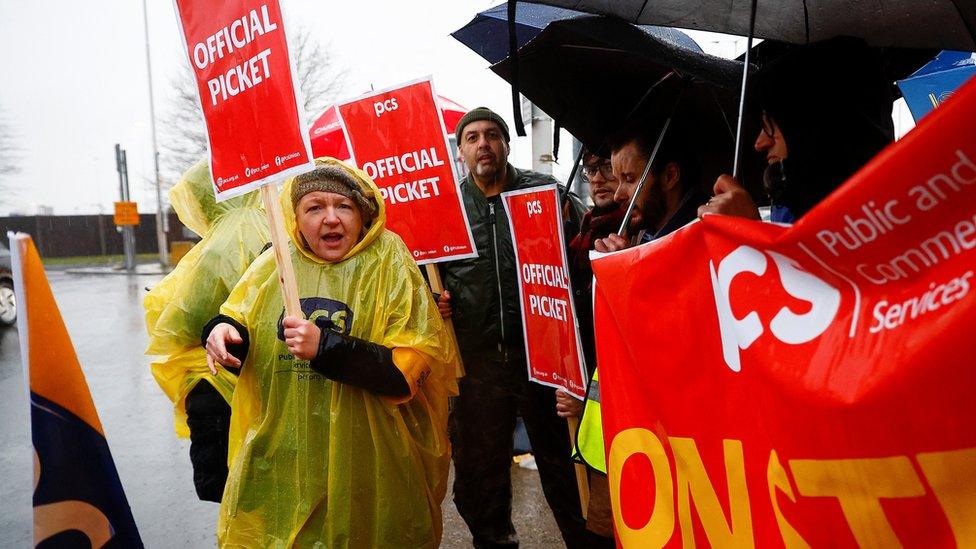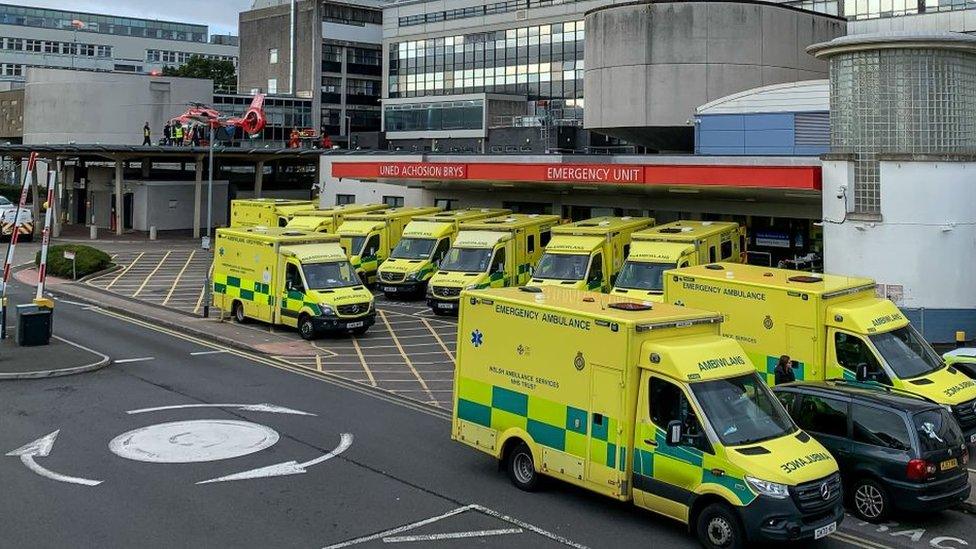Ambulance strike: Union calls off next day of walk outs
- Published

An ambulance strike in Wales on 28 December has been called off by GMB, but another date added on 11 January
A second day of ambulance strikes set for 28 December in Wales has been called off.
GMB members in England and Wales were set to walk out in a pay dispute after the previous strike on Wednesday.
The union has now called off next week's strike to "allow people to enjoy Christmas", but announced a further day of walk outs on 11 January.
It comes as the Royal College of Nursing (RCN) has announced its members would not strike in Wales in January.
The Welsh government said it was urging the UK government to provide a "fair pay offer to NHS staff" which would provide the funding for it to do the same in Wales.
GMB national secretary Rachel Harrison said: "The incredible British public are why we are suspending our action over the Christmas period.
"But it also means the government can now do what ambulance workers and the public want - get round the table and talk pay now. We are here 24/7. Any time, any place."
Following the previous GMB strike on 21 December, the Unite union announced on Thursday that it would stage a strike in the new year after 88% of its members voted for industrial action.
About 1,000 paramedics, medical technicians and call handling staff are among those expected to take action.
Richard Munn, Unite regional manager, said: "The last thing our Welsh Ambulance Service workers want to do is strike. But they know they have to take a stand to prevent the NHS from total collapse."
The third ambulance workers' union in Wales, Unison, is re-balloting members over strike action.

Why are ambulance workers striking?
Ambulance workers want to secure above-inflation pay rises, but have not announced a figure.
The Welsh government has given workers an average pay rise of 4.75%, but with inflation running at more than 10%, unions said this represented a pay cut in real terms.
Unions have argued that any offer needs to be high enough to prevent a recruitment crisis. In Scotland, two unions have accepted an improved pay offer of 7.5%.
Jason Killens, head of the Wales Ambulance Service, has also suggested that factors beyond pay, such as workplace environment, long handover delays outside hospitals and late finishes had influenced some workers' decisions.

The Welsh government said: "We understand the strength of feeling among ambulance workers about the pay offer and the pressures all public sector workers are under due to the cost-of-living crisis.
"We will continue to work to bring together trade unions, employers and government to deliver the best possible outcomes for workers."
Related topics
- Published21 December 2022

- Published23 December 2022

- Published22 December 2022

- Published20 December 2022
